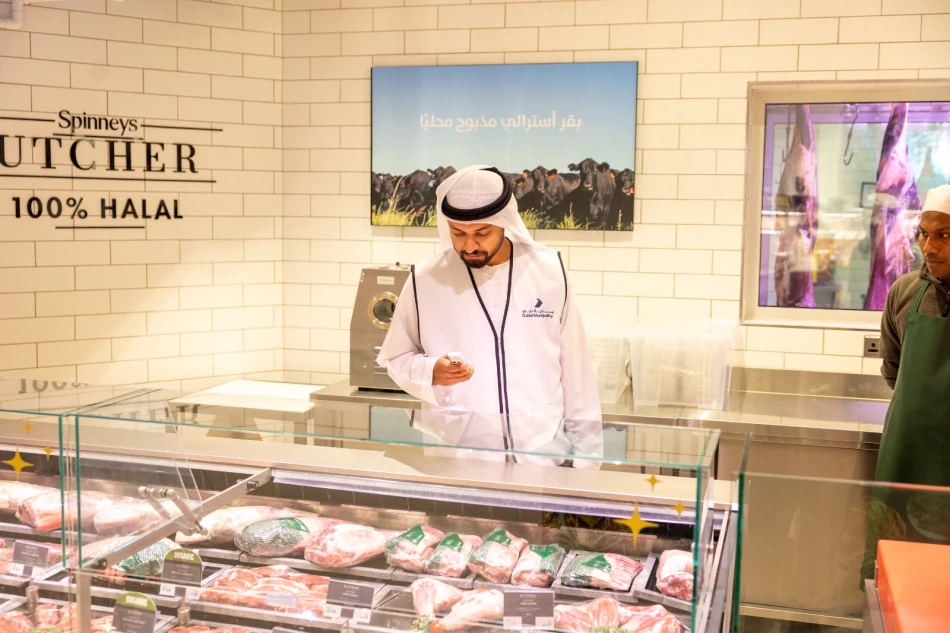
Dubai Municipality Conducts 34,000 Food Safety Inspections in First Half of the Year
Dubai's Food Safety Blitz: 34,700 Inspections Signal Zero-Tolerance Approach to Public Health
Dubai Municipality has ramped up its food safety enforcement with an unprecedented 34,700 inspections across the emirate in the first half of 2025, underscoring the city's commitment to maintaining its reputation as a global destination while protecting public health. The aggressive oversight comes as Dubai's food sector experiences explosive growth, with over 2,300 new establishments opening and 4.9 million tons of food imports flowing through the emirate.
Inspection Surge Reflects Dubai's Growth Ambitions
The massive inspection campaign represents more than routine regulatory oversight—it's a strategic response to Dubai's rapidly expanding food ecosystem. With 2,336 new food establishments launched in just six months, authorities are clearly prioritizing safety standards to match the pace of commercial growth.
This proactive stance distinguishes Dubai from other regional hubs where regulatory frameworks often lag behind market expansion. The emirate processed 173,775 food shipments totaling 4.9 million tons, positioning itself as a critical node in global food trade networks.
Data-Driven Food Safety Infrastructure
Beyond inspections, Dubai Municipality registered 77,700 new food products in approved databases and cleared 940,000 food items after mandatory testing. This systematic approach to food registration creates a comprehensive safety net that many competing jurisdictions lack.
The scale of these operations reflects Dubai's investment in becoming the Middle East's primary food hub, similar to Singapore's role in Southeast Asia or Miami's gateway function for Latin American trade.
Economic Implications for Food Industry Stakeholders
For international food companies and investors, Dubai's intensified oversight sends mixed signals. While rigorous standards may increase compliance costs and entry barriers, they also provide quality assurance that protects brand reputation and consumer confidence.
Dr. Sultan Al Taher, Director of Food Safety at Dubai Municipality, emphasized the strategic importance: "These achievements demonstrate Dubai Municipality's continuous efforts to build an integrated and sustainable food system that supports the welfare and quality of life of residents and visitors."
Regional Competitive Advantage
Dubai's comprehensive food safety framework positions it ahead of regional competitors who may offer lower regulatory barriers but higher reputational risks. This mirrors strategies employed by established food hubs like the Netherlands and Denmark, where strict standards ultimately attract premium brands and health-conscious consumers.
Technology Integration Drives Efficiency
The municipality's emphasis on "smart tools and modern technologies" suggests significant investment in automated inspection systems and digital tracking capabilities. This technological integration likely reduces inspection times while improving accuracy—a crucial advantage when processing nearly 175,000 shipments in six months.
Such digital infrastructure investments typically pay dividends through faster clearance times and reduced administrative costs, making Dubai more attractive to international food traders despite stringent safety requirements.
Long-term Market Positioning
Dubai's food safety initiative represents calculated positioning for post-oil economic diversification. By establishing itself as the region's most reliable food safety jurisdiction, the emirate attracts multinational food companies seeking secure distribution networks for Middle Eastern and African markets.
This strategy aligns with broader UAE economic policies emphasizing quality over quantity in foreign investment attraction. The approach has proven successful in financial services and aviation sectors, suggesting similar potential for food industry development.
Most Viewed News

 Sara Khaled
Sara Khaled






